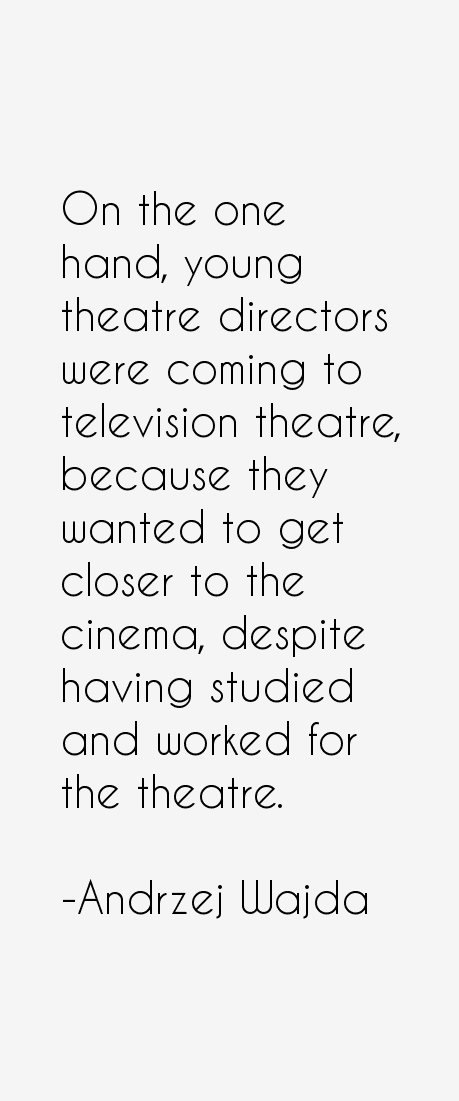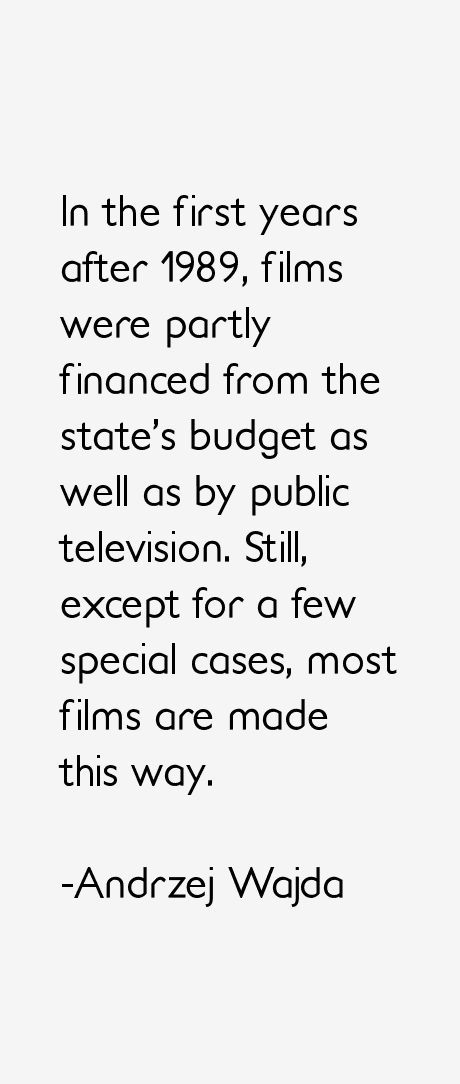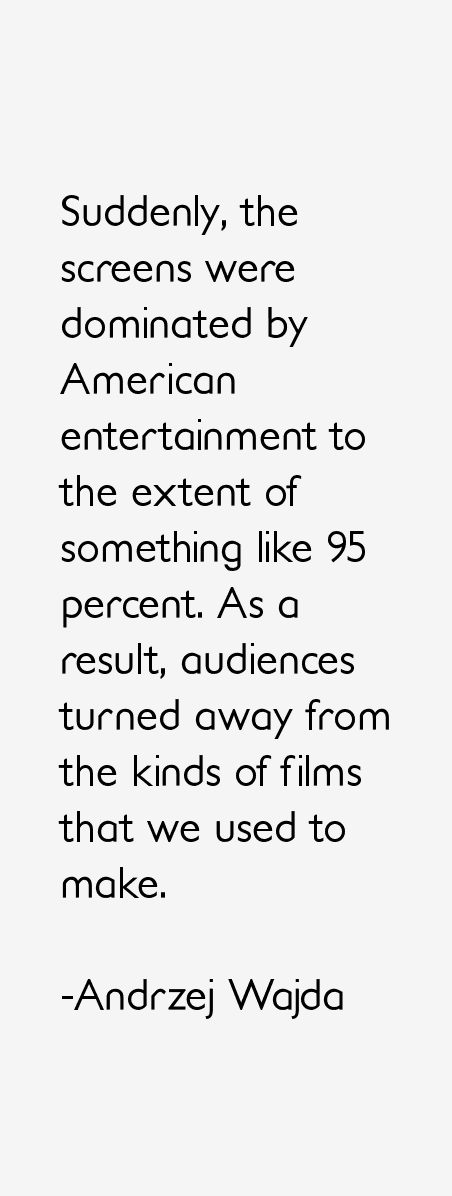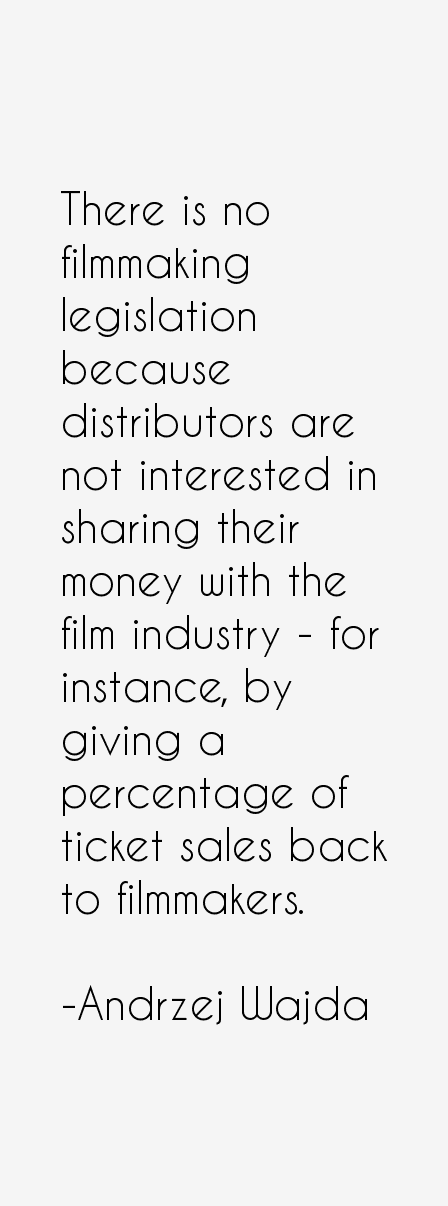Andrzej Wajda Quotes & Sayings (Page 3)
Andrzej Wajda quotes and sayings page 3 (99 year old director). Here's quote # 21 through 30 out of the 31 we have for him.
“Eventually, the state's funding covered only the stages leading to presenting a film project to potential funding bodies. It was enough to produce a script, indicate casting and put together a budget to present it all, but nothing beyond that.”

“On the one hand, young theatre directors were coming to television theatre, because they wanted to get closer to the cinema, despite having studied and worked for the theatre.”

“In Europe, there is no television filmmaking legislation that could assist film production because private broadcasters are not interested in supporting Polish film.”

“In the first years after 1989, films were partly financed from the state's budget as well as by public television. Still, except for a few special cases, most films are made this way.”

“In the first years after the systemic transition, our screens showed American entertainment that had not been available before, or had been available only sporadically.”
“In the forty years of the people's republic, some of the worst historical traits were preserved in our people. These included even the common characteristics developed in the economic reality of the time of partitions in the 17th and 18th centuries.”

“Previously the same Polish audiences would have been pressured into seeing cinema made for adults, films made by us about those spheres of life that were significant for us and which should be significant for our society.”

“Suddenly, the screens were dominated by American entertainment to the extent of something like 95 percent. As a result, audiences turned away from the kinds of films that we used to make.”

“There is no filmmaking legislation because distributors are not interested in sharing their money with the film industry - for instance, by giving a percentage of ticket sales back to filmmakers.”
“We expected that people were just waiting for the collapse of the Soviet Union, or at least for its retreat, and they were going to be full of initiative in all areas of life - in culture, in economy and in politics.”
Andrzej Wajda Quotes Rating
No Ratings Yet
Leave A Comment
























